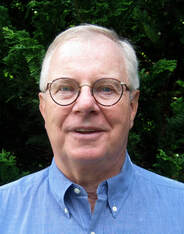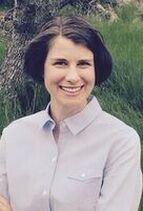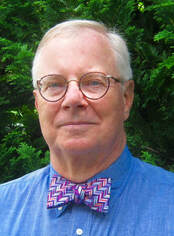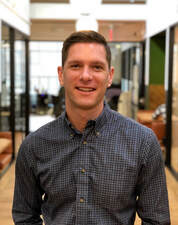 Peter Gow Peter Gow I wrote this post (slightly edited here) on my personal blog almost five years ago, responding then to the plight of immigrant children and hoping to spur some action on their behalf. THINGS ARE FAR, FAR MORE DREADFUL—AND DEADLY—TODAY, with the United States under its current regime maintaining the equivalent of concentration camps for children in which they are deprived of such basic human (and developmental!) necessities such as soap and a balanced diet. This not only violates all the principles of human decency but also qualifies as child abuse. I call here on all teachers to step up and use their technical status as as mandated reporters of abuse, neglect, and cruelty, to raise the hue and cry across the land to report our government’s abuse of these children to the proper and duly constituted authorities. We cannot allow our leaders’ contempt for these children and their families to justify depriving of them of their most fundamental human rights and needs--in our name. I add here a bit of history; as a nation we have long used race, citizen status, and other spurious and specious factors to justify the systemic abuse of children. This has to stop. Teachers PLEASE REPORT THIS ABUSE! The teaching profession and most of the non-profit and social service sector operate on an assumption that has seemed unassailable to me all of my life: that human beings innately and inherently love and value children above the lives of adults, above all things. “Women and children first!” into the lifeboats; evacuate the kids when the bombs begin to fall. The other day it struck me, cruelly and horribly, that this is a false premise on which to base either social policy or even, heaven help me, my own life and work. It boils down to a review of the facts, whether they are to be found watching the news or reading history books. Time after time, in episode after episode, we see overwhelming evidence of a callousness that devalues and dehumanizes children, in particular children of “the Other,” and even sacrifices these children wholesale. And human beings, pretty much all kinds of them, have a remarkable facility for designating those not of their tribe or nation or race or faith or class as “the Other.” Human rights campaigns notwithstanding, governments, societies, ostensibly benevolent institutions like churches, and of course individuals have shown themselves capable of both shocking active cruelty and appalling neglect toward children. This isn’t news to anyone, but what is compelling and dispiriting to ponder is that such behavior is neither anomalous or something that humanity is evolving away from. I think the roots lie in racism, but they lie also in classism and perhaps even in our psychology. For example, the children abused, sometimes to death, in orphanages and in the dark corners of churches have not always been obviously “the Other,” but as I understand it, in most cases their vulnerability has stemmed from economic or family dysfunction that left them at the mercy of those designated as their caregivers. The bodies exhumed at the Dozier School in Florida in summer of 2014 are of children to whom society paid no attention or felt so little obligation that their deaths didn’t even register to anyone outside the closed, cruel circle of the place. This story is not unusual; it’s just the one on the front pages most recently. A century ago, if there’d been a newspaper with the nerve or heart to write them, they might have been similar tales of the Native American boarding schools in the United States and Canada. In 1940 the school where I work took in, as did a number of American schools, children who had been shipped “across the pond” by their British families to evade Nazi bombs. The Nazis weren’t especially singling out children—despite the hundreds of thousands of them who died in the Holocaust—but they weren’t interested in protecting them, either. The trans-Atlantic child evacuations ended when a German U-Boat sank the City of Benares, a passenger ship carrying 90 children to “safety” in North America. All but thirteen died. The Hitler regime accused the British of using the children as something like a “human shield,” and they torpedoed the ship anyway. I have been haunted since college by a line I encountered in a course on the trans-Mississippi West, perhaps the most horrible—and revealing—words in American history: “Nits make lice.” With these three words, U.S. cavalry commander John Milton Chivington justified his orders to murder and mutilate Cheyenne and Arapaho children in what is called the Sand Creek Massacre in 1864. Most history books don’t even have the guts to call it, as some do, the Chivington Massacre. Chivington’s sentiment, that the children of enemies, of the Other, grow up to be bothersome adults, seems to offer an explanation for the attitudes that keep bullets flying, rockets falling, and drones buzzing across our 21st-century world. They certainly illuminate the genocidal mindset as I understand it, back as far into history as we are capable of peering. Forget about economics or ideology or even faith. The child of my enemy, of him or her whom I despise, is my enemy, is despicable, is unworthy of life. When humans decide to kill, we start there. That’s about as grim and terrible as the story gets, maybe, but in our own country in our own time we are witnessing the re-segregation of our schools by race and income level and the inevitable disparities in access to resources and opportunity that follow from this. Millions of American children live in poverty, lack adequate food and health care, and attend under-resourced and even physically dangerous schools. We can sing all we want that “children are our future,” but kids living in such circumstances are being systemically and systematically denied the chance to participate as equals in that future with their more affluent coevals. All the worse, of course, for children who lack the legal protections of citizenship: demagogues and a whole lot of average citizens, just plain folks, seem fine with shipping the 50,000 or so recently arrived undocumented children back to whatever murderous, impoverished places they have come from. Would it be different if they were orphans from a plague in Monte Carlo or Copenhagen, carrying their bankbooks in their pale hands? I’m all for keeping up the positive sentiments around children and the future, but I think we need to take a cold hard look at the world and see that, against all our benevolent and hopeful reckoning, we as a species are perfectly comfortable depriving children of life, liberty, and happiness—not to mention family and opportunity and dignity—with scarcely the batting of an eye. This means (as so many Dickens novels teach us in the long, gripping, painful parts that precede the happy endings), that those of us who would be reformers, who would put ourselves out there to protect and save and teach the children, are up against a world that cares much less for its children and their lives than we want to believe. We’re going to have to revisit our happy-talk notions of human nature and understand that there really are a lot of people who don’t actually care whether the children of the poor or of some putative enemy grow up poor, too—or whether they grow up at all.
1 Comment
 Corinne Dedini Corinne Dedini As teachers, we all have our own flavor of innovation, and we leave for summer with ideas (or, if you’re like me, a stack of haphazard notes in a drawer) to revamp our courses for next year. Sometimes there are new tools we’ve heard about that we want to test out, and sometimes we have a new course to design. Whatever the motivator, teachers are lifelong learners and we seek to grow professionally. I’ve noticed two essential ingredients that are necessary for this growth. First, teachers need time and space for expansive reflection. Second, they need a structure to guide the process of designing for a reimagined learning experience. Here’s how we’ve taken these challenges on. Expansive Reflection Meredith Mikell, One Schoolhouse Astronomy and Marine Science teacher, has to refuel each summer because, in her words, she teaches “intellectual recklessness.” Concerned that so many good science students have a fixed mindset, Meredith spends her summers pursuing her own passions - including attending the annual Star Trek convention! - so that she can shift the learning paradigm for her students. By designing activities that allow for creative application, Meredith’s projects allow students to “discover” basic science principles. For example, the null hypothesis is a notoriously tedious topic to teach because it is so abstract. But Meredith’s Astronomy students uncover its true meaning when they are asked to determine whether their teacher is actually an alien. Far from the rote experimental design question, this crazy origin story inquiry pushes students to the brink of what science can answer, and therein lies the lesson. (Her home planet is earth, in case you are wondering). If Meredith didn’t take her own growth and rejuvenation seriously, she could never conceive of the wild ideas that promote brave discovery in her classes. Even if you have to leave this galaxy to clear your mind, make this part of your professional growth; protect it like your students’ learning depends on it--because it does. Structure to Guide Design Given the frenetic pace of the school year, summer is the only time when teachers have time to think. This is why we believe that the best formula for teacher growth is summer planning. Here’s an outline of what transformative summer professional development might look like:
Improve your practice this summer and register for upcoming professional development at One Schoolhouse - courses start July 15, 2019:
Beyond Building Leadership in Schools for Boys Introduction to Boys' Schools Introduction to Girls' Schools Introduction to Independent Schools Mastery Practice in Teaching Boys Relational Teaching Tim Fish, Chief Innovation Officer at the National Association of Independent Schools, talks about the importance of continual learning for faculty and how that happens best online.
Learn more and register for upcoming professional development at One Schoolhouse here - courses start July 15, 2019.  Peter Gow Peter Gow Once upon a time I had a summer job at a Girl Scout camp on Martha’s Vineyard, and my first season there was happiest of my life to that point. I found a community, good and lifelong friends, and an ethos of caring for an ideal, an enterprise of the heart and soul, that introduced me to the ways that “mission-driven” and “values-aligned” can shape lives. I was staggered to discover, on the last day of the season, that the final night campfire of the final session was one of the most emotional events I had ever experienced. Later, when my late spouse and I worked together at Girl Scout camps she directed, this closing ritual, with weeping campers and weeping counselors, remained a powerful, often wrenching reminder of the strength of a community of purpose. As the last embers of the fire died out, the words of one song would hit me especially hard, and they have stayed with me: “This is so long, but not goodbye.” For the Independent Curriculum Group, this newsletter is our final campfire. It’s a time to remember the great times we’ve had, to express our gratitude and deep affection for those who have supported us, and to make a wish. It’s also a time to look forward, to reassure ourselves that the mission and values of “independent curriculum” abide—not just in our hearts and minds, as touchstones of what the future of education ought to look like, but in the ongoing work and purposes of our new partners at One Schoolhouse. So thank you, thank you all: to the educators and friends of education who have found resonance in our ideas; to the schools whose leaders have seen fit to join in our work; to those who have worked with us at our events and made common purpose with us; to all those whom I have gotten to know at Academic Leaders Retreats, at our conference presentations, and through our correspondence and conversations on policy, practice, big questions, and big ideas. I also thank those who have given of their time and energy over the years first as the steering committee behind the body that became the Independent Curriculum Group and then as members of our board. Without your dedication, I would not be writing this almost twenty years after the idea of independent curriculum was born. Above all I thank my predecessor, Bruce Hammond, whose idea the ICG was and who as executive director molded a loose bunch of starry-eyed idealists into a strong and purposeful nonprofit that has contributed much to the educational conversation. Along with Mark Salkind, our founding board chair, Bruce made the ICG a reality. And in the spirit of looking forward, I must thank Brad Rathgeber, head of school at One Schoolhouse, and the One Schoolhouse board for recognizing our common bonds and for your willingness to help sustain our ideals into the future. In accordance with final night campfire tradition, I offer a wish: I wish that our highest ideals as educators and their essence as expressed in the ICG’s Principles of Independent Curriculum might one day come to define the educational experience of every child, in every kind of school, everywhere. The Vineyard Sailing Camp is closed now, but when old campers or staff get together we remember and honor what made the place and our times there so special. We can still sing the songs and feel the power of their words to take us not backward but deeply into ourselves and the sources of lifelong hopes and dreams that still energize and give purpose to our lives today and will continue to do so as long as we live. This is so long from the me at the Independent Curriculum Group, but this is in no way a goodbye to the community of purpose we idealists have been and will ever be. You will hear from us (and from me) and our ideals again, through One Schoolhouse surely, and perhaps even in the songs from your own past that still bring you hope and joy.  Brad Rathgeber Brad Rathgeber When we began our work online, we saw it as an opportunity to expand opportunities for students. Instead, we learned early on that it was possible to use this new medium for faculty, too. We quickly found five major benefits to doing so:
As we started to get involved in PD, we learned how many great partners support the independent school community. They wanted to build the skills necessary to bring great content and learning experiences online. So we partnered with them. Over the years, we’ve built courses with NBOA, NCGS, the Independent Curriculum Group, Folio, the IBSC, NAIS, and many state and regional associations. We’ve even helped bring schools’ PD programs online. The connections we make with independent school educators every year have grown into a rich and rewarding web of relationships. We’ll continue to expand our professional development offerings over the next number of years because we’re committed to supporting the worldwide community of independent schools. Boost your experience, connect with colleagues and learn from nationally recognized mentors this summer! With courses designed for new faculty, classroom teachers, administrators and department chairs, and topics on leadership, "big picture" school finances, goal setting, and relational teaching - this is your chance to learn something new:
|
Don't miss our weekly blog posts by joining our newsletter mailing list below:AuthorsBrad Rathgeber (he/him/his) Archives
July 2024
Categories |

 RSS Feed
RSS Feed